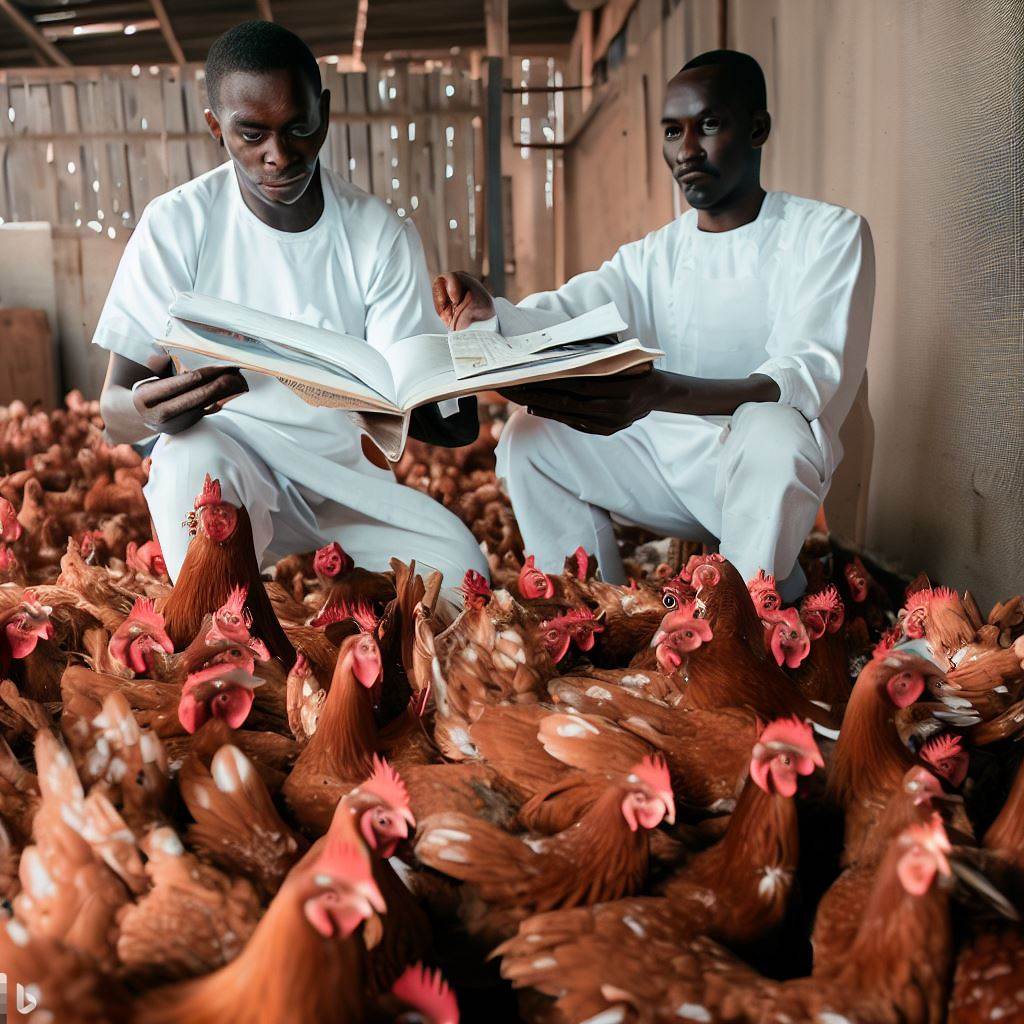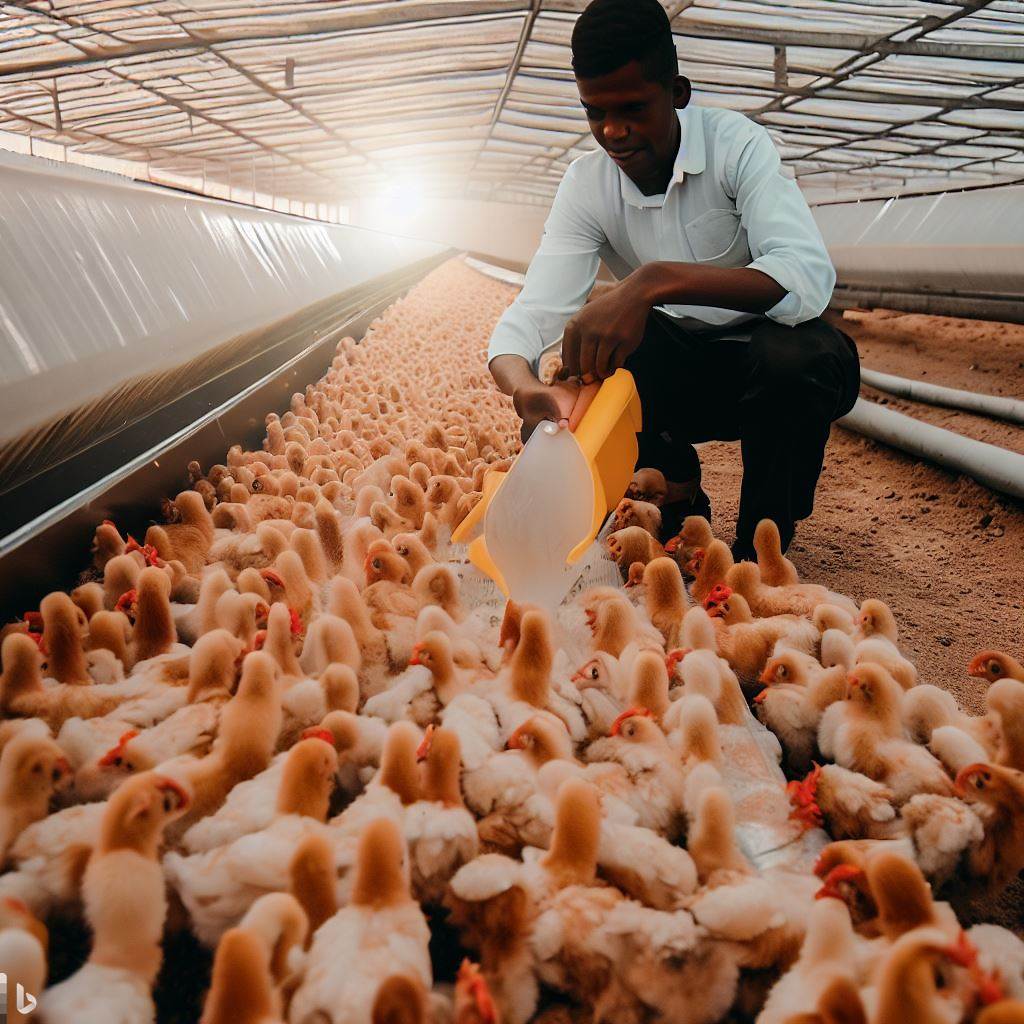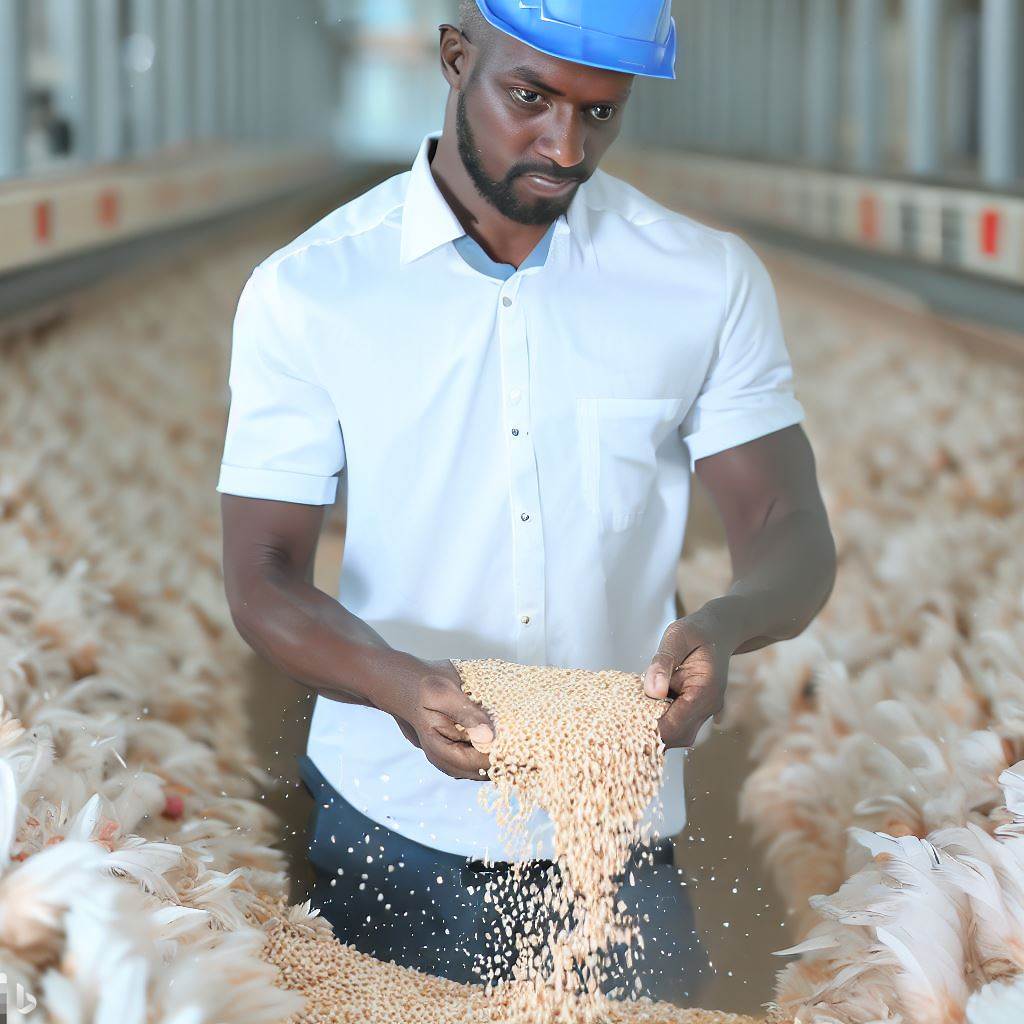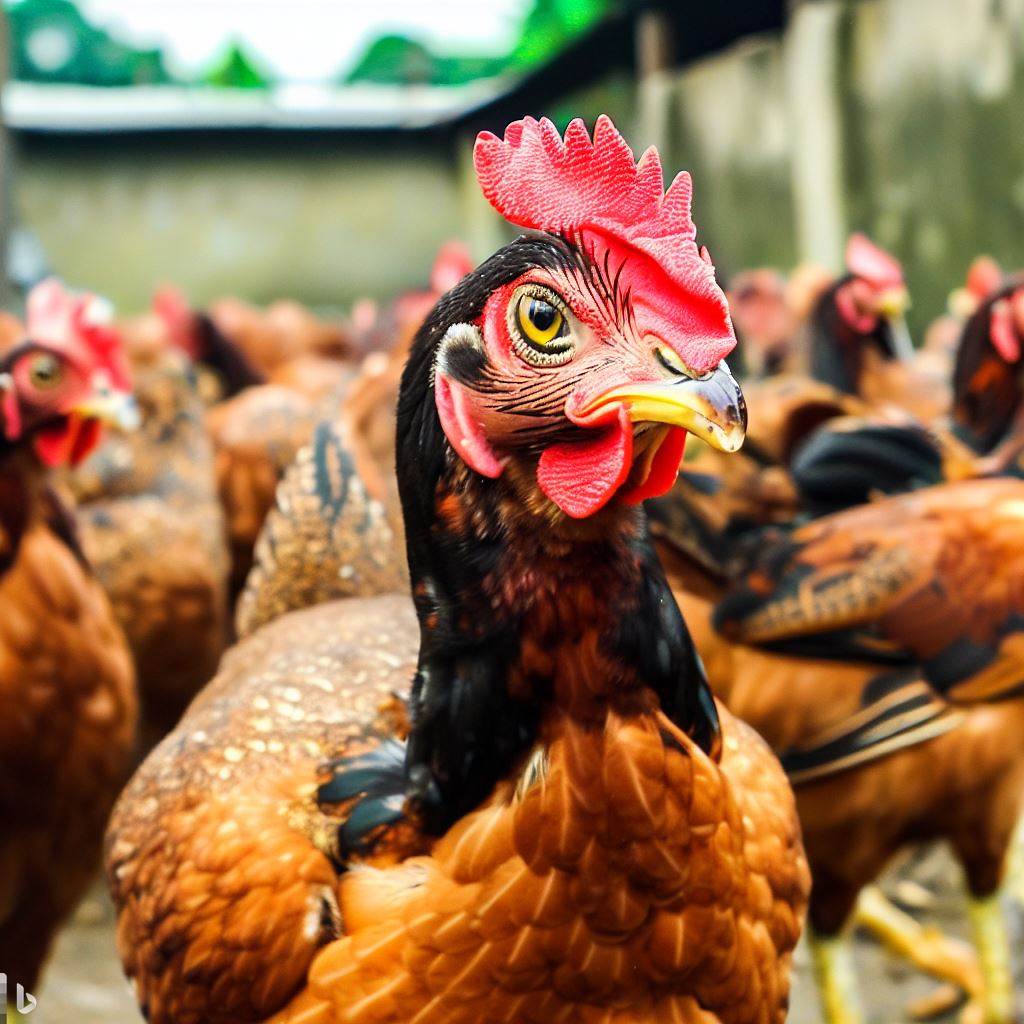Introduction
A. Importance of the Nigerian poultry production sector
The Nigerian poultry production sector plays a crucial role in the country’s economy, providing employment and contributing to GDP.
B. Purpose of the blog post
This blog post aims to explore the emerging trends in the Nigerian poultry production sector.
C. Overview of the emerging trends to be discussed
The following emerging trends will be discussed in this post; technological advancements, vertical integration, and sustainable and organic poultry production.
Technological advancements have revolutionized the poultry production sector in Nigeria.
With the adoption of modern techniques such as automated feeding systems and temperature control, productivity and efficiency have significantly increased.
Vertical integration is another emerging trend in the Nigerian poultry production sector. Large-scale poultry farms are now encompassing every aspect of the production process, from breeding to processing and distribution.
This integration allows for greater control and ensures quality and consistent products in the market.
Sustainable and organic poultry production is gaining importance in Nigeria.
With the increasing demand for healthier and chemical-free poultry products, farmers are adopting sustainable practices such as organic feed and natural remedies for diseases.
This trend promotes environmental consciousness and enhances the market value of poultry products.
All in all, the Nigerian poultry production sector is of immense importance to the economy, and it is experiencing several emerging trends.
Technological advancements, vertical integration, and sustainable and organic practices are transforming the sector and shaping the future of poultry production in Nigeria.
Stay tuned as we delve deeper into each trend in the upcoming sections of this blog.
Overall Changes in the Nigerian Poultry Production Sector
A. Increase in local production
- Reasons behind the rise
Nigeria has witnessed a significant increase in local poultry production due to several factors.
Firstly, the government’s implementation of policies promoting agricultural development has encouraged investment in the poultry sector.
This has led to a boost in the number of poultry farms across the country.
Additionally, the rising population and changing dietary habits of Nigerians have created a growing demand for poultry products.
Local production has become essential to meet this demand and reduce the country’s dependence on imports.
Moreover, the high prevalence of infectious diseases in imported poultry has raised concerns about food safety.
This has further motivated consumers to support locally produced poultry, as it is perceived to be safer and of higher quality.
B. Shifting consumer preferences
Demand for organic and free-range chicken
Consumers in Nigeria are increasingly seeking organic and free-range chicken products, driven by a health-conscious mindset.
With a growing awareness of the benefits of organic food, consumers are willing to pay a premium for poultry raised without antibiotics, hormones, and other chemical additives.
This trend aligns with the global movement towards healthier and more sustainable food options.
Health-conscious consumer base
Furthermore, the health-conscious consumer base in Nigeria has prompted a shift towards leaner meat options.
Chicken, being a lean source of protein, has gained popularity among fitness enthusiasts and individuals striving to maintain a balanced diet.
C. Technological advancements
Technological advancements have revolutionized the Nigerian poultry production sector, improving efficiency and productivity.
Automation in poultry production processes
Automation has transformed various aspects of poultry production, such as feeding, egg collection, and waste management.
This has not only reduced labor costs but also minimized human error, resulting in higher yields and profitability for farmers.
Use of artificial intelligence and machine learning
Additionally, the integration of artificial intelligence and machine learning enables real-time data analysis and decision-making.
Farmers can optimize production parameters, monitor flock health, and predict disease outbreaks, leading to proactive measures and improved overall farm management.
However, the adoption of technology comes with challenges.
Advantages and potential challenges of technology adoption
High initial investment costs, limited technical expertise among farmers, and inadequate infrastructure pose barriers to widespread implementation.
Furthermore, the potential impact on employment opportunities in the sector raises socio-economic concerns that need to be addressed.
In short, the Nigerian poultry production sector has witnessed notable changes driven by increased local production, shifting consumer preferences towards organic and free-range chicken, and the adoption of technological advancements.
These trends reflect evolving consumer demands and the industry’s efforts to enhance productivity, sustainability, and food safety.
Improved Animal Welfare Practices
One of the emerging trends in the Nigerian poultry production sector is the focus on improved animal welfare practices.
This includes a shift towards cage-free farming and an emphasis on proper nutrition and feed quality.
A. Shift towards cage-free farming
Benefits of cage-free systems
Cage-free farming allows poultry to move freely in an open space, providing them with a more natural and comfortable environment.
This can lead to better overall welfare for the birds and improved egg quality.
Challenges associated with transitioning to cage-free farming
Transitioning to cage-free farming comes with its challenges.
It requires significant investment in infrastructure to accommodate the increased space needed for the birds.
Additionally, managing the flock in an open environment can be more labor-intensive and may require more skilled workers.
B. Emphasis on proper nutrition and feed quality
Impact on poultry health and productivity
Proper nutrition and feed quality are essential for maintaining optimal poultry health and productivity.
A well-balanced diet ensures that the birds receive the necessary nutrients for growth, disease prevention, and egg production. This leads to improved profitability for farmers.
Sustainable feed alternatives
In recent years, there has been a growing interest in finding sustainable feed alternatives.
Utilizing local and plant-based ingredients as feed sources not only reduces dependency on expensive imported feeds but also contributes to the sustainability of the poultry sector.
Research and development efforts are focused on identifying affordable and nutritious feed options that are readily available in Nigeria.
The shift towards cage-free farming and the emphasis on proper nutrition and feed quality in Nigerian poultry production reflect a commitment to improving animal welfare and overall sustainability in the sector.
These trends align with global efforts to address animal welfare concerns and promote more sustainable farming practices.
Implementing cage-free systems can pose initial challenges, but the benefits of providing poultry with a more natural environment cannot be understated.
Likewise, investing in proper nutrition and feed quality ensures healthier and more productive flocks.
It is crucial for farmers and industry stakeholders to stay informed about these emerging trends and be proactive in adapting their practices accordingly.
By embracing these changes, Nigerian poultry producers can enhance the welfare of their animals, produce higher-quality products, and contribute to a more sustainable and ethical poultry production sector.
Read: Insider Tips for Profitable Poultry Farming in Nigeria
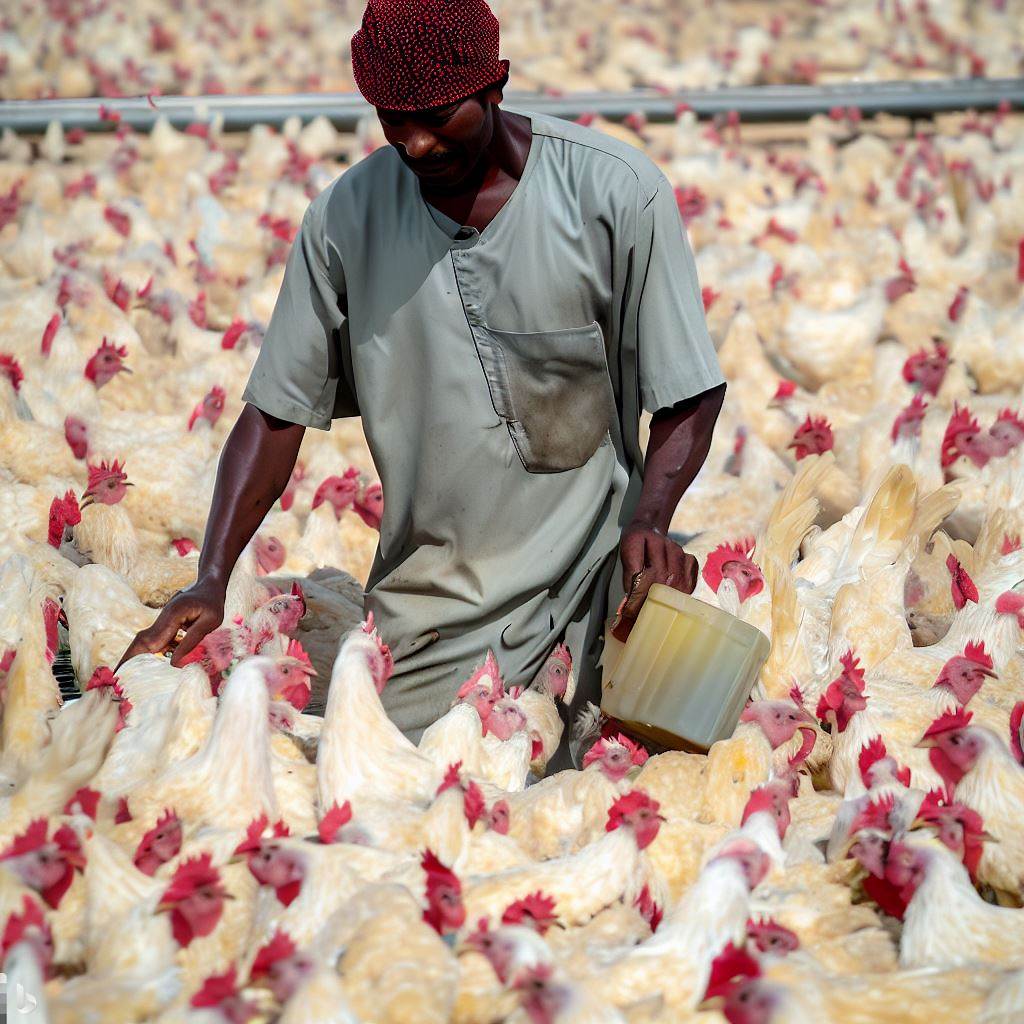
Increased Focus on Biosecurity
A. The importance of biosecurity measures
Biosecurity has become a critical factor in the Nigerian poultry production sector.
With increasing awareness about the impact of diseases on poultry farms, farmers have realized the importance of implementing strict biosecurity measures.
Effective biosecurity measures help prevent the entry and spread of infectious diseases, ensuring the overall health and productivity of the poultry.
These measures include proper hygiene practices, vaccination programs, and controlled access to the farm.
B. Implementation of strict biosecurity protocols
To address the growing concerns regarding disease outbreaks, poultry farmers in Nigeria have started implementing strict biosecurity protocols.
They have recognized the need to control the movement of people, animals, and equipment to minimize the risk of disease transmission.
Farmers have established designated entry and exit points, along with footbaths and handwashing stations, to ensure visitors and staff adhere to biosecurity protocols.
They have also limited the entry of vehicles and equipment to specific areas.
C. Biosecurity investments and their impact on the industry
Investments in biosecurity infrastructure and equipment have significantly impacted the Nigerian poultry production industry.
Farmers have realized the cost-effectiveness of prevention compared to the massive losses incurred during disease outbreaks.
The industry has seen an increase in the construction of biosecure poultry houses, with features such as controlled ventilation systems to reduce the risk of airborne pathogens.
Additionally, the use of disinfection equipment and other technological advancements has become more common to maintain high biosecurity standards.
By prioritizing biosecurity, poultry farmers are ensuring the sustainability of their operations.
The implementation of these measures not only protects the birds but also safeguards the livelihood of farmers and the entire poultry industry.
In short, the Nigerian poultry production sector has experienced a significant shift towards increased focus on biosecurity.
Farmers have recognized the importance of biosecurity measures in preventing disease outbreaks and ensuring the long-term profitability of their operations.
Strict biosecurity protocols have been implemented, including controlled access points, hygiene practices, and vaccination programs, to minimize the risk of disease transmission.
Investments in biosecurity infrastructure and equipment have further strengthened the industry’s ability to maintain high biosecurity standards.
The emergence of these trends highlights the industry’s commitment to adopting best practices to improve the health and productivity of poultry farms in Nigeria.
With continued efforts, the Nigerian poultry production sector can thrive and contribute to the country’s food security and economic growth.
Read: Understanding the Market Demand for Poultry in Nigeria
Integration of Digital Platforms
A. Marketplaces for poultry products
- Convenience for buyers and sellers
- Challenges and concerns in online transactions
B. Traceability and supply chain management
- Benefits of traceability in poultry production
- Role of blockchain technology in ensuring transparency
Trends in Nigerian Poultry Production have witnessed a transformative shift with the integration of digital platforms.
This shift brings convenience to buyers and sellers, bolsters supply chain traceability, and enhances transparency through blockchain technology.
Digital poultry marketplaces have revolutionized the sector, offering easy access to a wide array of products.
Previously, physical visits were necessary, but now, purchasing poultry products is a few clicks away, enabling transactions from homes or offices.
However, challenges persist. Buyers are concerned about product quality, while sellers grapple with establishing trust.
Essential to food safety, traceability is facilitated by digital platforms that record every production phase.
The crux lies in blockchain technology, which fosters transparency in the poultry supply chain.
Securely recording production details on a decentralized ledger, blockchain empowers stakeholders with real-time, accurate information.
In the end, the fusion of digital platforms into Nigerian poultry production ushers in convenience, amplified traceability, and heightened transparency via blockchain.
Despite challenges, the sector is primed to flourish in this digital era.
Read: Health and Safety Standards in Nigeria’s Poultry Industry
Innovations in disease control and prevention
A. Emerging diseases affecting the poultry sector
- Avian influenza: a highly contagious viral disease that can cause severe illness and death in poultry and humans.
- Newcastle disease: a viral infection that affects the respiratory, nervous, and digestive systems of birds.
- Infectious bursal disease: a highly contagious viral infection that affects young chickens and can cause immunosuppression and death.
- Salmonellosis: a bacterial infection that can be transmitted through contaminated poultry products and poses a risk to human health.
B. Vaccination and immunization programs
- Importance of vaccination: Vaccines play a crucial role in preventing and controlling diseases in poultry.
- Regular vaccination schedules: Poultry farmers must follow a strict vaccination schedule to ensure the health and well-being of their flocks.
- Types of vaccines: Vaccines for poultry include live attenuated, killed, and modified-live vaccines.
- Advancements in vaccine development: Continuous research leads to the development of innovative vaccines that provide better protection against emerging diseases.
C. Genetic research and development for disease-resistant poultry breeds
- Importance of genetic resistance: Developing disease-resistant poultry breeds is essential to reduce disease susceptibility and minimize economic losses.
- Breeding practices: Genetic research aims to identify and select traits associated with disease resistance, which can be passed on to future generations.
- Genetic markers: Genetic markers help identify individuals with desirable disease-resistant traits, enabling selective breeding.
- Genetic modification: Scientists are exploring genetically modifying poultry to enhance their resilience to various diseases.
Advancements in disease control and prevention have revolutionized the Nigerian poultry production sector.
Emerging diseases consistently jeopardize poultry health and economic stability. Nevertheless, innovative strategies are countering these challenges effectively.
Critical concerns encompass diseases like avian influenza, Newcastle disease, infectious bursal disease, and salmonellosis, causing havoc in poultry health and industry profitability.
Swift disease transmission poses severe threats to both poultry and public health.
Combatting these issues necessitates robust vaccination and immunization programs. Adhering to vaccination schedules is pivotal for safeguarding flocks against harmful pathogens.
Enhanced vaccine development ensures potent protection, significantly curbing disease impacts.
Genetic research assumes a pivotal role in disease control. By identifying disease-resistant traits, scientists aim to breed robust poultry strains.
Genetic markers enable selective breeding, elevating overall poultry health and productivity.
Innovative genetic modification techniques hold potential in bolstering poultry disease resistance.
By introducing specific genetic alterations, scientists can create resilient poultry strains, reducing disease impact and elevating production.
In fact, Nigerian poultry production confronts emerging disease challenges with innovative tools. Advanced vaccination schemes and genetic research fortify the sector.
These trends promise healthier, more productive flocks, ensuring sustainability and prosperity in Nigerian poultry.
Read: Impact of Government Policies on Poultry Production in Nigeria
Conclusion
A. Summary of the discussed emerging trends in the Nigerian poultry production sector
- The use of technology, such as automated systems and data analytics, is improving efficiency and productivity.
- Sustainable practices, including waste management and organic feed, are gaining importance.
- Increased focus on biosecurity measures to prevent disease outbreaks and ensure the safety of poultry products.
- The rising demand for organic and free-range poultry products as consumers become more health-conscious.
B. Importance of adapting to changes for sustainable growth in the industry
The Nigerian poultry production sector needs to embrace these emerging trends to stay competitive, meet consumer demands, and achieve long-term success.
C. Encouragement for further research and development in the poultry sector for continued improvement:
Continuous research and development are crucial for innovation, addressing challenges, and maximizing the potential of the Nigerian poultry industry.

